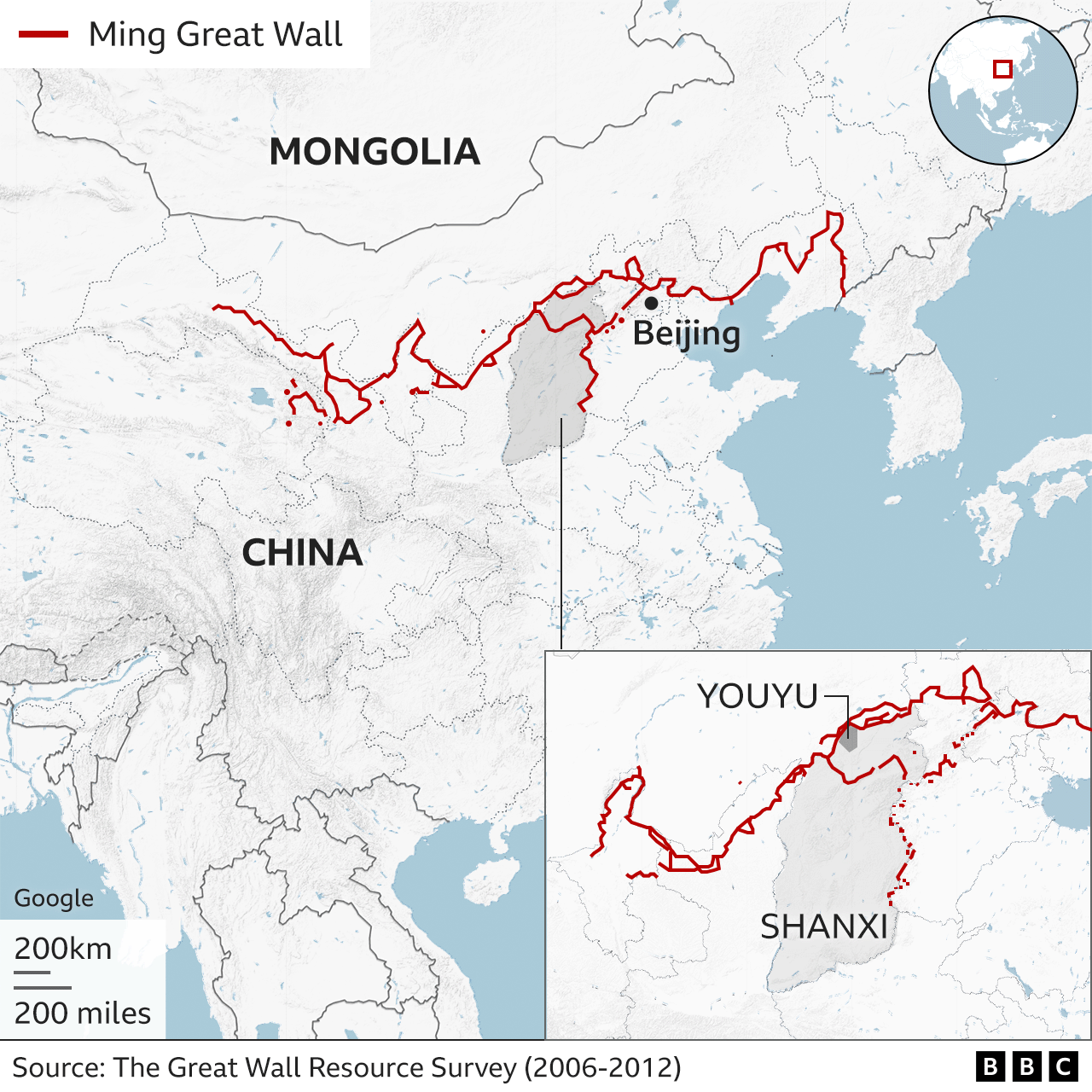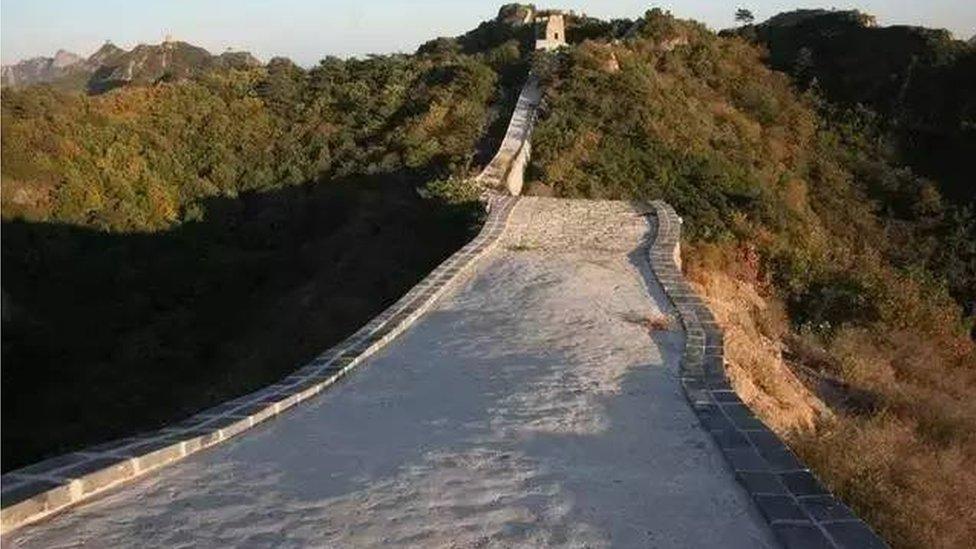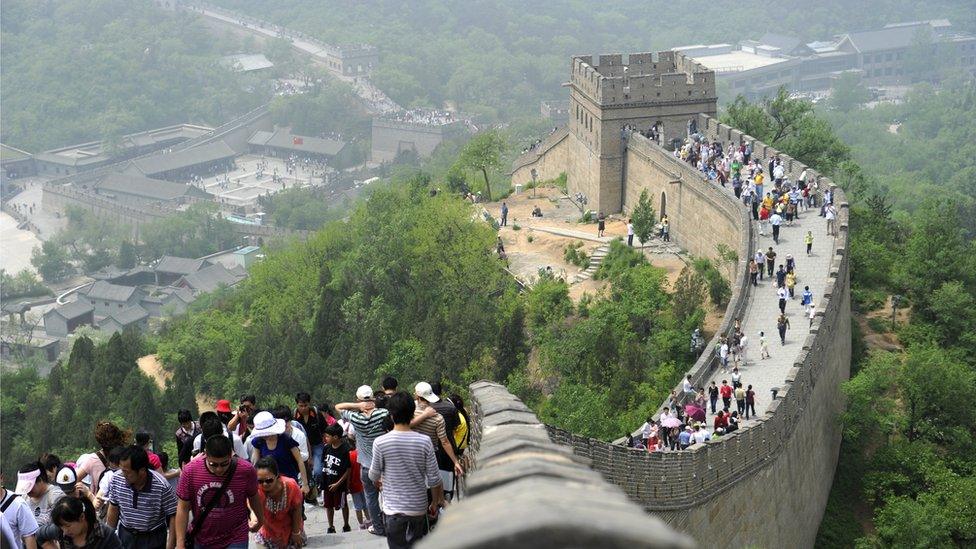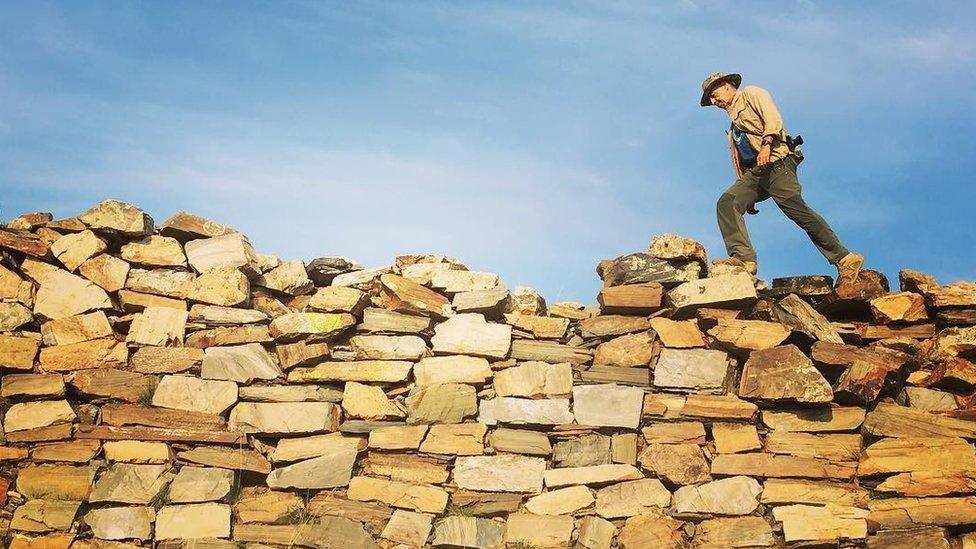China's Great Wall damaged by workers looking for shortcut
- Published

Local police say two people excavated a "big gap" on an existing cavity of the ancient Great Wall to create a shortcut
A part of China's Great Wall has been severely damaged by construction workers in central Shanxi province, who used an excavator to dig through it.
Police say two people are suspected of trying to create a shortcut for their construction work.
The two have been detained and the case is under further investigation.
The 38-year-old man and 55-year-old woman were working near the affected area, the 32nd Great Wall.
They dug a "big gap" by widening an existing cavity of the Great Wall so that their excavator could pass through it. Police say they wanted to reduce the distance they had to travel.
Police also stressed that the two caused "irreversible damage to the integrity of the Ming Great Wall and to the safety of the cultural relics".
Located in Youyu county, the 32nd Great Wall is a section of the Ming Great Wall and is categorised as a historical and cultural site which is protected at the provincial level.
Officers were alerted to the damage on 24 August after receiving reports that there was a huge gap in the wall.
The Great Wall, a Unesco world heritage site since 1987, was built and rebuilt on a continual basis from around 220 BC until the Ming Dynasty in the 1600s, when it was the world's largest military structure.
The best-preserved parts were built during the Ming Dynasty between the 14th and 17th centuries. It is one of these that now has a huge new hole blasted through it.

The section of the Great Wall of China near Beijing is one of the country's best known tourist attractions
While the better-known parts of the Great Wall consist of beautifully built structures dotted with ancient watchtowers, other parts of the structure are crumbling or have disappeared altogether.
A 2016 report , externalfrom newspaper Beijing Times suggests more than 30% of the Ming Great Wall has disappeared entirely, with only 8% of it considered well preserved.
To understand why somebody - such as the accused - might have such a blasé attitude towards wrecking a section of this world-famous historical structure, it is important to consider what it is.
The Great Wall is a series of battlements stretching across vast sections of northern China and it is in widely varying states of disrepair. It is sometimes found in places with villages or towns, but often in remote areas of various provinces.
The oldest portions, dating back thousands of years, were rammed earth walls and now appear as mounds, not even immediately recognisable as the Great Wall.
Much of the degradation of the wall has been attributed to local farmers stealing bricks or stones to build houses or animal pens.
More recently, the government has gone to greater lengths to preserve the Great Wall and, as a result, these two people are in a lot of trouble.
The public in China won't think that these actions have been extremely unusual, given the previous destruction of the Great Wall, but they will be upset by them, given the enormous historical and cultural importance of this structure - not only for China but for all of humanity.

Related topics
- Published8 December 2022

- Published22 September 2016

- Published7 September 2016

- Published6 January 2017
